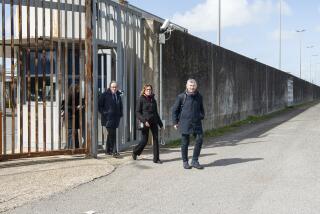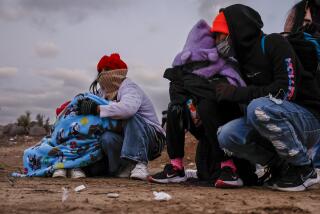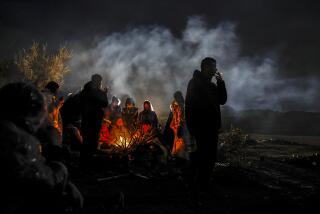Dangerous conditions in Bosnian migrant camp, rights group says
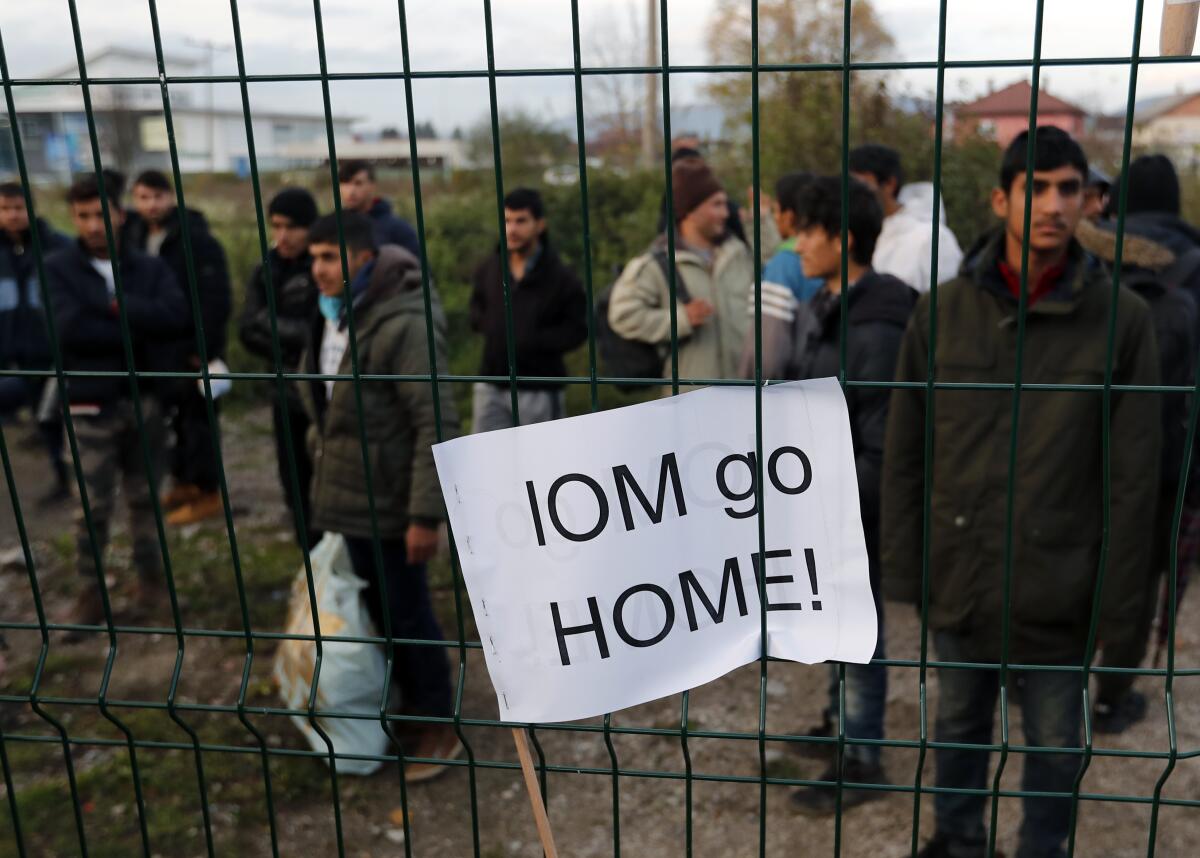
- Share via
BIHAC, Bosnia-Herzegovina — A prominent humanitarian group is warning that migrants trying to reach Western Europe are living in “dangerously cold and harsh conditions” in Bosnia, where hundreds have rallied amid tensions over the influx of people fleeing war and poverty.
The protesters in the northwestern city of Bihac on Friday demanded the closure of overcrowded refugee camps and the relocation of the migrants from the city area. They carried banners reading “Free Bihac!” and chanted anti-migrant slogans.
Bosnia has been overwhelmed by the arrival of migrants heading toward Europe along the so-called Balkan route. Most migrants flock to the northwest section, which borders European Union member Croatia.
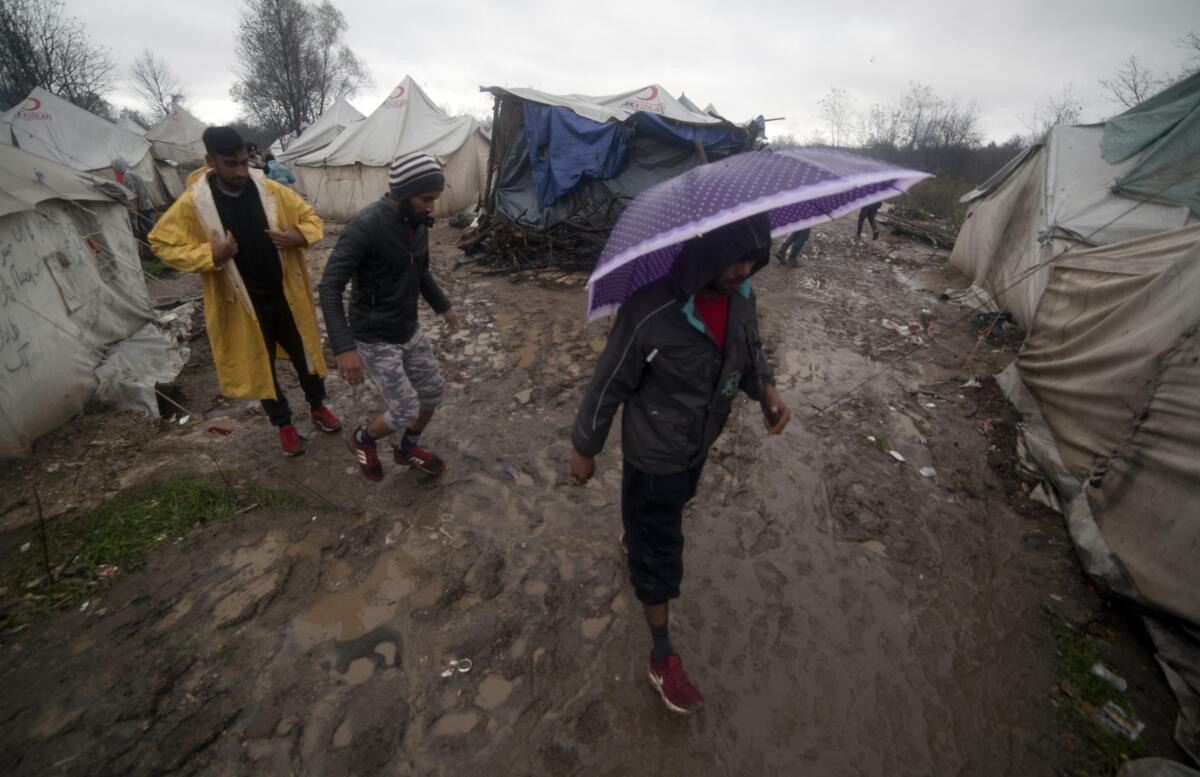
This has led to tensions in the border area, with local authorities demanding that other parts of the country share the migrant burden and take in some of the more than 6,000 people staying in the area.
The Doctors Without Borders group warned that “people may die without adequate shelter and other basic services” in Bosnia, where many migrants are sleeping in makeshift shelters and abandoned homes.
“Four official centers for migrants exist, but services are inadequate and tensions are high, leading most people to stay elsewhere,” the report added.
It singled out the improvised Vucjak refugee camp in northwestern Bosnia, describing it as a “dangerous and inhumane place” that does not meet minimum living standards. The camp is located on a landfill and next to a minefield from the 1992-95 Bosnian war.
“People arrive at our clinic from Vucjak in flip-flops, without socks or jackets, a lot of them suffering from respiratory infections and from skin diseases caused by the horrific living conditions,” said Nihal Osman, Doctors Without Borders’ deputy field coordinator. “It should be closed now.”
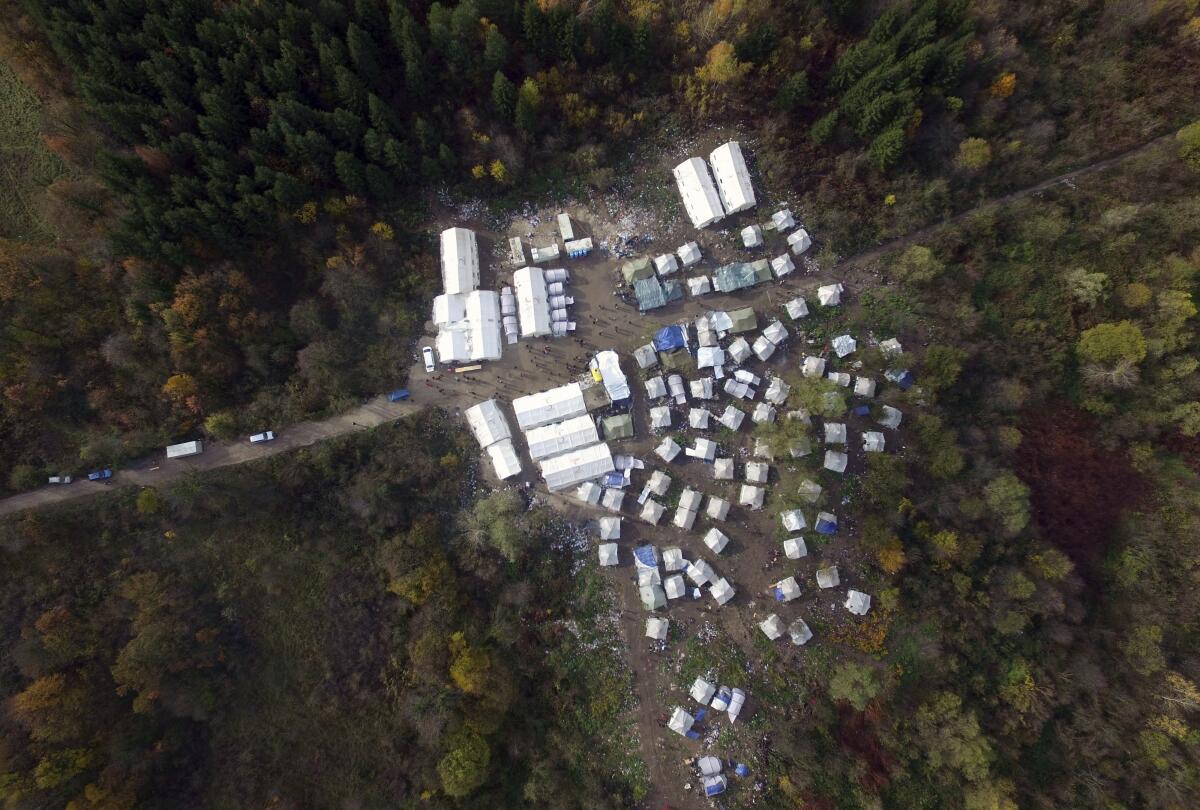
In a bid to pressure the central Bosnian government to relocate some of the migrants, the regional government vowed to fully restrict migrant movements at the two main camps beginning Friday.
Bosnia’s central government has said it would turn two former army barracks in other parts of the country into new migrant facilities. This was hailed by the EU mission in Bosnia, which expressed hope that it would lead to the closure of the Vucjak camp.
“We expect all the authorities in the country to continue working together in good faith to find ways for burden sharing and long-term solutions,” the EU said.
Ethnically divided since the war, Bosnia has failed to come up with a unified, efficient response to the migrant crisis. The Bosnian Serb part of the country has refused to accept any migrants on its territory and has blocked efforts to deploy the army to stem the influx of migrants from Serbia. Many other Bosnian regions have also rejected hosting refugee centers.
A municipal official in Bihac, Ermic Zulic, said both Bosnia and the EU have failed to manage the migrant influx.
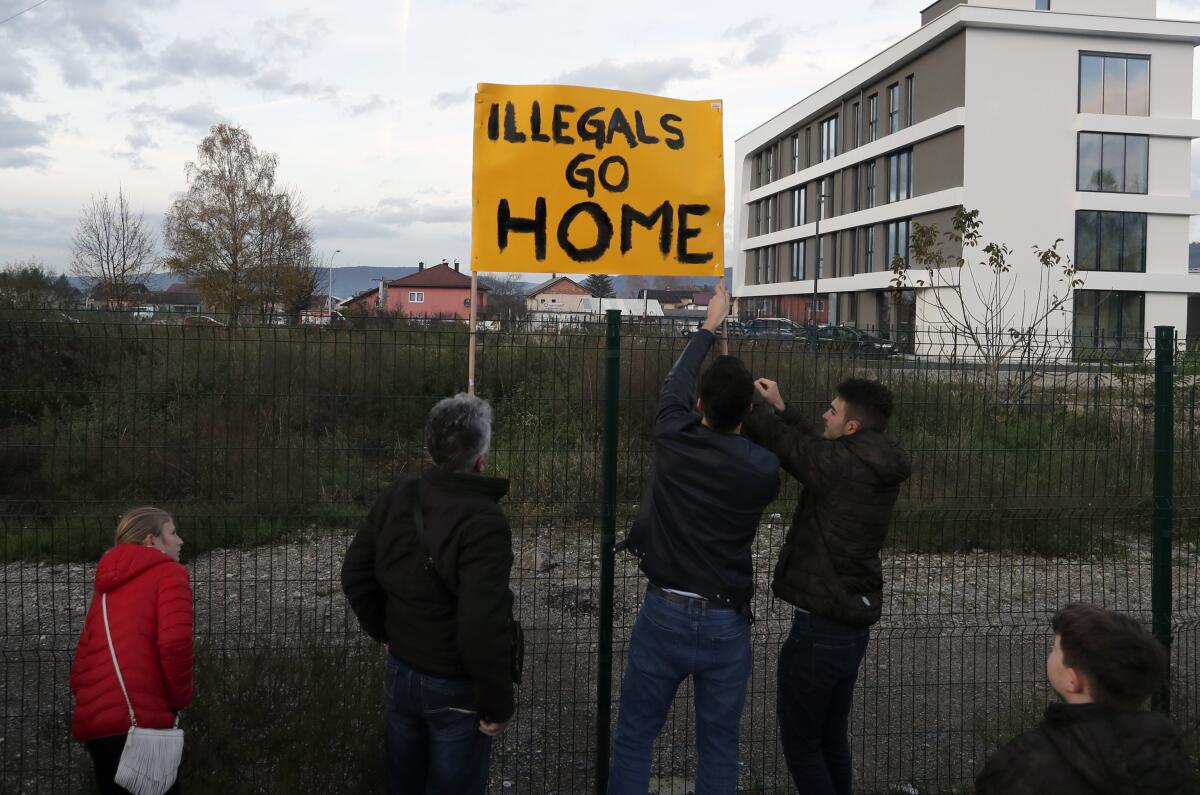
“The situation is out of control. The situation has escalated,” he complained. “They are telling us that even greater number of migrants will be pouring in next year, so we had to react.”
While many Bosnians have expressed sympathy with the migrants because of their own war experience, many also have protested their presence and demanded that the migrants be moved or restricted to the refugee camps.
Fadil Dizdarevic, who lives close to the Bira camp in Bihac, said, “We want this to stop, we want them out of here.” At Friday’s protest outside the camp, another resident, Omer Demirovic, insisted, “We are demanding they be moved out of the city.”
No incidents were reported at the gathering, which was secured by about a dozen policemen.
Inside, migrants said police wouldn’t let them move freely about the town.
“Everything is a problem. It’s cold and everybody is dirty,” said Obit Han from Afghanistan.
More to Read
Sign up for Essential California
The most important California stories and recommendations in your inbox every morning.
You may occasionally receive promotional content from the Los Angeles Times.
